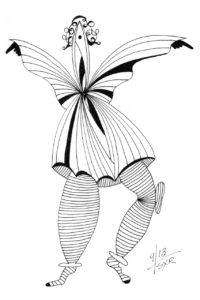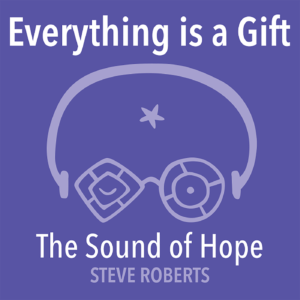What does the word “tired” mean when someone says, “I’m just so tired of hearing about Trump.”?
I belong to that club myself, and I’ve written I don’t know how many essays about the man. But here’s what I’ve learned along the way. The weariness we feel can open a door to the joy of existence. How? By spurring us to cultivate one of life’s most important skills. Freeing pain.
That’s because pain is exhausting, until we realize we have tools to free it, and use them.
In fact, pain is more than exhausting. As our understanding of addiction deepens, leading voices (such as physician Gabor Maté, author of In the Realm of Hungry Ghosts) contend that at the root of all addiction, no matter the form, is the pain of a psycho-spiritual emptiness a person is attempting to escape.
Trump, and the ethical vacuum he incites, is nothing but pain. How could it be otherwise from a man who negotiates life with the principle: Give me what I want or I’ll hurt you.?
But the pain we all must learn to free is far beyond that born of hooligan T. It is the ocean of disharmony in which we all swim. Judgment, genocide, terrorism, pollution, climate change, child abuse, racism, sexual assault, greed, self-righteousness, poverty, trauma, injustice, and of course addiction of every stripe are a few of the more common agents that effortlessly come to mind.
One measure of that pain is our use of pharmacological treatments for it. In his illuminating book published in 2014 “The Body Keeps the Score: Brain, Mind, and Body in the Healing of Trauma,” Bessel Van Der Kolk, M.D. notes:
-
- The number of people treated for depression has tripled over the past two decades. One in ten Americans now take antidepressants.
- If antidepressants were indeed as effective as we have been led to believe, depression should by now have become a minor issue in our society. Instead, even as antidepressant use continues to increase, it has not made a dent in hospital admissions for depression.
- Mainstream medicine is firmly committed to a better life through chemistry, and the fact that we can change our physiology and inner equilibrium by means other than drugs is rarely considered.
I have a special familiarity with that last bullet. My beloved and I live in month 12 of her abduction to planet depression. The surrealness of the experience is due in no small measure by the difficulty of getting on and getting off dangerously addictive medications with undesirable side-effects as we attempt to discover an amalgam that can serve her with reasonable consistency.
However valuable prescription drugs are, their ability to free the pain inherent in being human is limited, if not non-existent, so far as I can tell. Drugs may mask pain, but they can’t free it. Also, the pharmaceutical “treatment” for depression seems to include for many people an addiction to antidepressants. Which means that the result of both depression and its remedy can be that one’s essential self is less than fully alive. For my beloved, while depression has abated considerably, the drugs she takes to that end are a barrier to experiencing the presence of God, the presence of her True Self, that for years has been the foundation of her well-being––indeed, the overriding focus of her life.
But this essay is not about drugs; it’s about freeing pain. And the happy irony is that the most powerful tool we possess to free pain is the easiest to find, the most readily available. Our breath.
The two greatest gifts of being human are the power of breath and the power of choice. The greatest insanity of being human is the belief that other people and outside circumstances are responsible for our sense of well-being. Our breath is the equivalent of a magic gizmo that helps us embrace our wily mind and gain enough sway over where we place our attention that equanimity becomes more and more our default setting. Among the benefits is the increasing ability to free pain, which is essential for equanimity to flourish.
We don’t need a teacher to begin paying attention to our breath, but you know what they say: nobody gets to the Olympics without a coach. Our heart is an excellent guide in finding support.
If there is a single reason why my beloved is still alive, it isn’t the drugs, helpful as they have been. It is the loving assistance she has received in her practice of joining her breath and freeing evermore deeply the pain depression represents.
Meanwhile, Trump remains oblivious to his gift to many of us: being the guy we’re just so tired of hearing about.





Excellent insights, Steve. There’s lots to unpack, which gives my cranium much to munch on.
I am sorry to hear your Beloved is battling the demons of depression, Steve. I am very familiar with that path. I send you both my love.